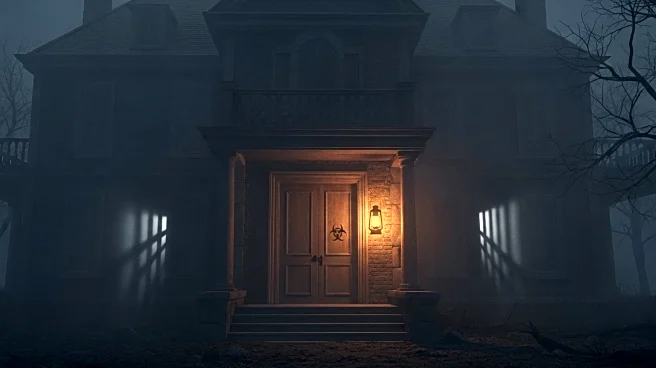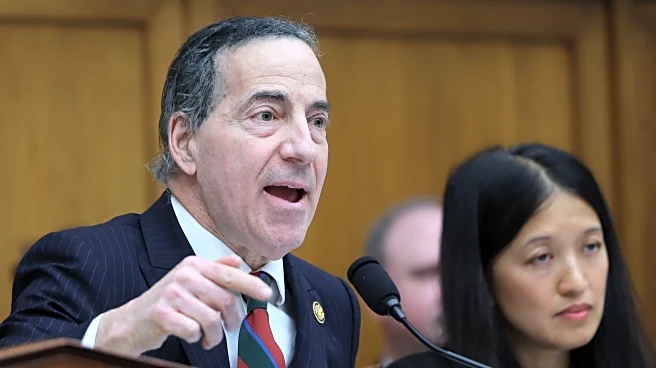What's Happening?
Capcom has announced that Resident Evil: Requiem, set for release in 2026, will offer more than just a nostalgic return to the series' roots. Despite aligning with the franchise's 30th anniversary, the game was not initially planned as an anniversary release. Producer Masato Kumazawa emphasized that Requiem will explore new narratives and locations beyond Raccoon City, aiming to blend fresh elements with familiar aspects of the series. The game will address lingering story threads while introducing new characters and settings, challenging expectations of a purely retrospective experience.
Why It's Important?
Resident Evil: Requiem's approach signifies Capcom's commitment to evolving the franchise while honoring its legacy. By integrating new storylines and characters, the game aims to attract both long-time fans and new players, potentially expanding its audience. This strategy reflects broader industry trends where established franchises seek to innovate while maintaining core elements that resonate with their fan base. The game's development highlights the balance between nostalgia and innovation, crucial for sustaining interest and relevance in a competitive gaming market.
What's Next?
As the release date approaches, Capcom may reveal more details about Resident Evil: Requiem's gameplay and narrative elements. Anticipation and speculation among fans regarding character appearances and plot developments are likely to intensify. Capcom's marketing strategy will play a key role in shaping expectations and driving engagement, potentially influencing future directions for the franchise. The game's reception could impact Capcom's approach to subsequent titles, informing decisions on narrative focus and character inclusion.
Beyond the Headlines
Resident Evil: Requiem's development raises questions about the role of nostalgia in gaming and how franchises can innovate while respecting their origins. The game's release during the series' anniversary year invites reflection on the cultural impact of Resident Evil and its contributions to the survival horror genre. It also highlights the challenges of balancing fan expectations with creative exploration, a dynamic that influences the broader entertainment industry.










